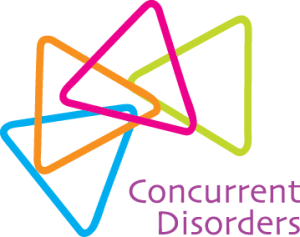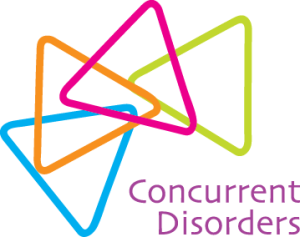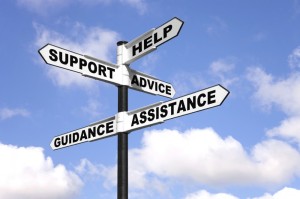
27 May Concurrent Disorders
Addiction and mental health problems are often seen as two completely separate entities. However, in quite a significant amount of cases, co-occurring addiction and mental health problems can be seen in clients. Does this happen with all mental health problems or addictions? What does this mean for the client’s symptoms? How does it affect treatment? All of these are important questions we will answer. But first we need take a look at the basic concept of concurrent disorders.
 Concurrent disorder is an umbrella term that is used to describe a diagnosed mental health problem co-occurring with an addiction. Diagnosis is difficult, as addiction and mental health symptoms may not be occurring at the same time or in the same intensity as the addiction, and vice versa. This can make treatment very difficult and determining which came first (the addiction or the mental health problem) nearly impossible. This is why it is very important to consider the addiction and the mental health problem two separate entities that interact with each other.
Concurrent disorder is an umbrella term that is used to describe a diagnosed mental health problem co-occurring with an addiction. Diagnosis is difficult, as addiction and mental health symptoms may not be occurring at the same time or in the same intensity as the addiction, and vice versa. This can make treatment very difficult and determining which came first (the addiction or the mental health problem) nearly impossible. This is why it is very important to consider the addiction and the mental health problem two separate entities that interact with each other.
There are two groups of mental health problems that are most commonly co-occurring with addiction; anxiety disorders and mood disorders. Anxiety disorders (i.e. generalized anxiety disorder, obsessive-compulsive disorder, panic disorder, post-traumatic stress disorder, and social anxiety disorder) more commonly co-occur with an alcohol addiction. Mood disorders (i.e. depression, bipolar disorder, etc.) more commonly co-occur with an addiction other than alcohol (i.e. cocaine, heroin, etc.). The addictions do vary from client to client, but the fact of the matter is that a significant number of those diagnosed with mental health problems will also struggle with an addiction or substance abuse problem at some point in their lives. It is important to keep in mind that your loved one is not their mental health problem or addiction, they are still your loved one. Those struggling with concurrent disorders still require love and support, especially through the recovery process. It is important to remain steadfast in your hope for them, while maintaining healthy and appropriate boundaries.
There is a noticeable connection between mental health problems and addiction. Substances are often used to cope with mental health problems when left undiagnosed or unmedicated. An addiction can also mask or mimic the symptoms of a mental health problem, making it significantly harder to diagnose without proper client history. Mental health problems can also be exacerbated by an addiction. Those who choose to self-medicate on top of their prescribed medication run the risk of making their psychiatric medication less effective. They also run the risk of going off of their prescribed medications and having a relapse of mental health symptoms. These interactions between addiction and mental health problems is incredibly problematic. Symptoms can vary greatly for mental health problems when someone is abusing substances. It is also possible for relapse with substance abuse if mental health problems are not being properly treated. It can lead to a vicious cycle of relapse and recovery until the right balance is found.
Part of the reason that diagnosed concurrent disorders are so difficult to treat is that it requires a great deal of coordination within the professional support system for the client. The choice often needs to be made as to what should be treated first, or if treatments should be received at the same time. This can vary greatly from person to person as the severity of both the addiction and the mental health problems needs to be properly assessed and taken into account. What works best for most clients is what is referred to  as integrated treatment. Integrated treatment works on emotional, cognitive, social, and addiction problems all at once. While treatment for these problems can often be provided under one roof, it is important that the client is receiving the best treatment possible. This often involves coordinating agencies and professionals into a care team. The care team leader would be a professional the client trusts who will make plans based on the successes and areas of greatest struggle for their client. By coordinating all those involved in the care process, the client has a much higher chance of having success in treatment of both mental health problems and addiction.
as integrated treatment. Integrated treatment works on emotional, cognitive, social, and addiction problems all at once. While treatment for these problems can often be provided under one roof, it is important that the client is receiving the best treatment possible. This often involves coordinating agencies and professionals into a care team. The care team leader would be a professional the client trusts who will make plans based on the successes and areas of greatest struggle for their client. By coordinating all those involved in the care process, the client has a much higher chance of having success in treatment of both mental health problems and addiction.
Hope is a very important part of the recovery process. With a diagnosis of a mental health problem coupled with an addiction, it can seem like your loved one will only get worse. However, recovery is more than possible if they are willing to seek treatment and work with people who can help them learn new ways to cope with their struggles. With the research in new medications and methods of therapies, there is a lot of hope for those who are struggling with concurrent disorders. Family and friends can be a great asset in instilling hope. You can help your loved one rediscover the hope in their future. Providing them with support and a safe place to express themselves without judgement is instrumental in a transition from their former instability into the stability of recovery.
